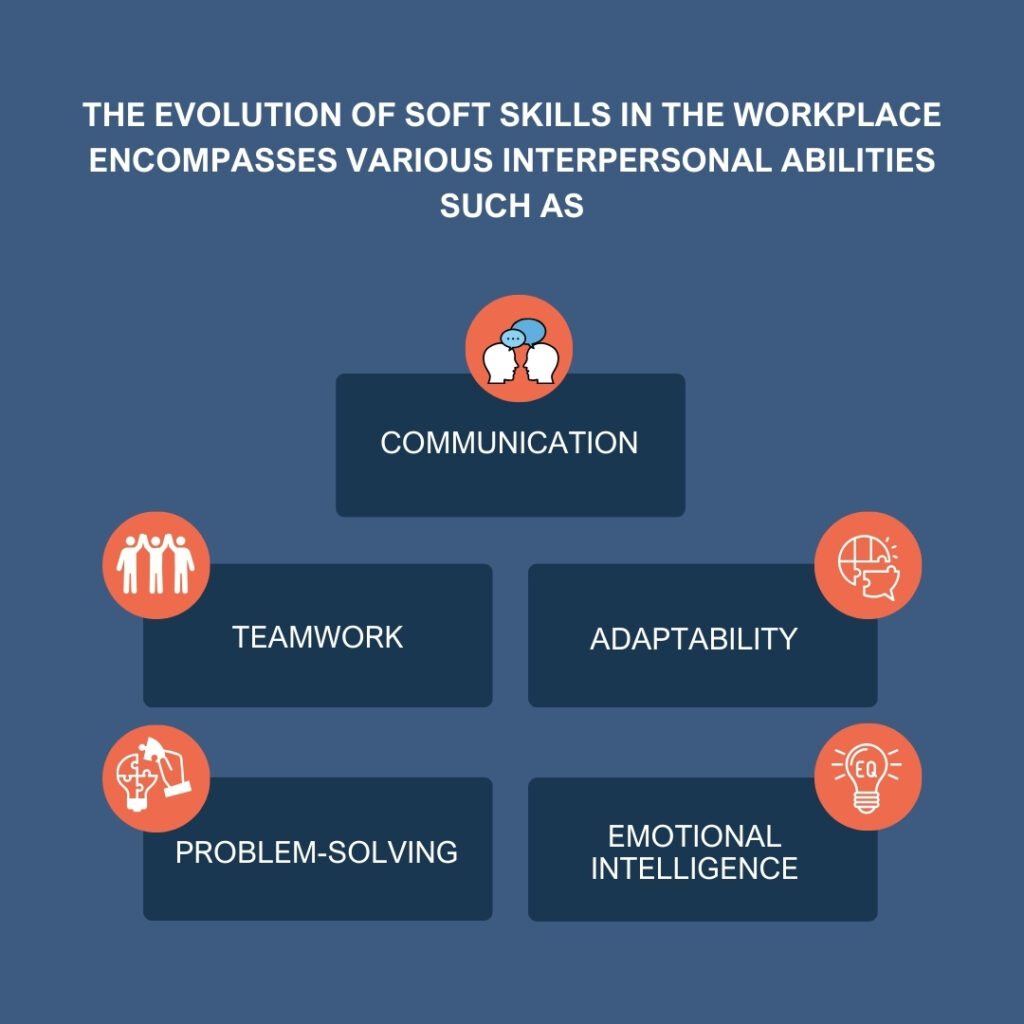Introduction
In the dynamic landscape of the contemporary workplace, technical expertise alone is no longer sufficient for career growth and success. Employers increasingly recognize the importance of soft skills in fostering effective communication, collaboration, and leadership. As a result, the demand for soft skills training has surged in recent years, with professionals seeking to bolster their interpersonal capabilities. This article delves into the significance of soft skills training, the impact of certified soft skill trainers, and the value offered by dedicated soft skills training courses.
The Evolution of Soft Skills in the Workplace
Soft skills encompass a broad range of interpersonal attributes, including communication, teamwork, adaptability, problem-solving, and emotional intelligence. Unlike technical skills that are specific to a particular job or industry, soft skills are transferable and applicable across various professional settings. Recognizing the integral role soft skills play in fostering a positive and collaborative work environment, organizations are increasingly investing in soft skills training programs.

Soft Skills Training Courses: A Necessity for Professional Development
The ever-evolving nature of the workplace requires professionals to continually adapt and acquire new skills. Soft skills training courses serve as a crucial avenue for individuals to hone their interpersonal abilities and stay relevant in a competitive job market. These courses are designed to address specific soft skills, providing participants with targeted learning experiences that can be immediately applied in their professional lives.
One of the key advantages of dedicated soft skills training courses is their structured approach. Unlike generic training programs, which may touch on various topics without depth, specialized courses delve deeply into specific soft skills, allowing participants to gain a comprehensive understanding and mastery of the subject matter. Moreover, these courses often incorporate real-world scenarios and practical exercises, enabling participants to apply their newfound skills in simulated environments.

Certified Soft Skill Trainers: Elevating the Learning Experience
The role of a certified soft skill trainer is pivotal in delivering effective and impactful training sessions. Certified trainers bring a level of expertise and credibility to the training process, ensuring that participants receive high-quality instruction and guidance. These trainers have undergone rigorous training themselves, obtaining certifications that validate their proficiency in teaching soft skills.
Certified soft skill trainers possess not only a thorough understanding of the various soft skills but also the ability to tailor their teaching methods to the unique needs of their audience. Their certification serves as a testament to their commitment to ongoing professional development and their dedication to delivering training that meets the highest standards.
The Impact of Soft Skills Training on Professional Success
Soft skills training goes beyond the development of individual capabilities; it contributes to organizational success by fostering a positive workplace culture. Effective communication, for example, reduces misunderstandings and enhances collaboration, leading to increased productivity and efficiency. Teamwork and leadership skills, when honed through training, contribute to a harmonious and motivated workforce.
Furthermore, professionals who invest in soft skills training often find themselves better equipped to navigate the complexities of today’s globalized and interconnected business landscape. Cultural sensitivity, adaptability, and emotional intelligence become invaluable assets for individuals working in diverse and cross-functional teams. As a result, those who undergo soft skills training are better positioned for career advancement and leadership roles.
Soft Skills Training Courses: Tailored Learning for Varied Needs
The diverse nature of soft skills necessitates a range of training courses catering to different needs. Whether an individual is seeking to enhance their public speaking abilities, improve conflict resolution skills, or develop emotional intelligence, there are specialized courses available. The flexibility of these courses allows professionals to tailor their learning experiences to match their specific career goals and areas of improvement.
Conclusion
In conclusion, the importance of soft skills in professional success cannot be overstated. Soft skills training courses, facilitated by certified soft skill trainers, offer a structured and effective approach to developing these essential interpersonal attributes. As the workplace continues to evolve, individuals who invest in honing their soft skills are better positioned for career advancement and are equipped to navigate the challenges of a dynamic and interconnected business environment. The demand for certified soft skill trainers and dedicated training programs is likely to grow as organizations recognize the pivotal role soft skills play in fostering a positive and collaborative work culture. Embracing soft skills training is not just a professional development initiative; it is a strategic investment in the success and resilience of both individuals and organizations in the modern workforce.





Leave a Reply